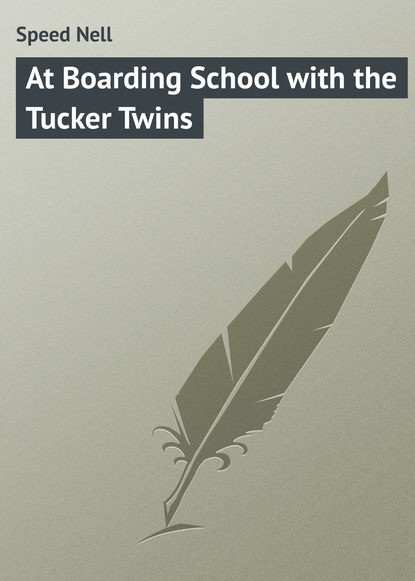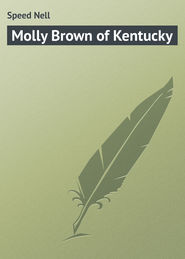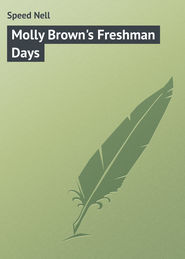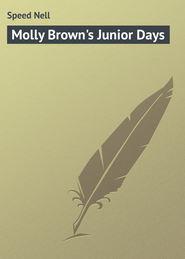По всем вопросам обращайтесь на: info@litportal.ru
(©) 2003-2024.
✖
At Boarding School with the Tucker Twins
Настройки чтения
Размер шрифта
Высота строк
Поля
He had done exactly as Dee said he would do: got a chair in the parlor car for "Orphan Annie." Right there I took myself to task for thinking of the poor girl as "Orphan Annie," and I determined to control my thoughts if possible and give her her proper name in my mind. Not that Annie Pore sounded much more cheerful than the name I had given her.
Our train was called and our kind courier bundled up bag and baggage and hustled us through the gates and into the chair car before Annie Pore had time to ask about it; and then he gave the Pullman conductor our tickets and settled us and the train started, and the girl never did know she was being treated to a privilege her ticket did not give her.
We had a jolly trip and before it was over I knew a great deal about the Tuckers, and they, in turn, a great deal about me, in fact, about all there was to know. It was many a day, however, before we broke through Annie Pore's reserve and learned that she was of English parentage, that her mother had recently died and her father had a country store in a lonesome little settlement on the river. No wonder the girl was so scary. This was actually her first railroad journey. What traveling she had done had been by boat, an occasional trip to Norfolk or Richmond when her father went to town to buy his stock.
There was an unmistakable air of breeding about her. Her accent was pure and her English without flaw. In spite of her timidity, she had a certain savoir faire. For instance, when Mr. Tucker announced that we were to have lunch with him and ordered the porter to bring two tables and put them up, Annie accepted the invitation with a quiet grace that many a society woman could not have equaled. When she took off her ugly hat, disclosing to view a calm white forehead with heavy, ripe-wheat hair rippling from a part, I had no doubt of the fact that Annie Pore, if not already a beauty, was going to be one when she grew up.
It was only a buffet luncheon and there was not much on the menu to choose from: baked beans, canned soup, potted meats, etc.
"Not much to eat here," grumbled Mr. Tucker.
"Eat what's put before you, Zebedee, and stop grouching," admonished Dum.
"Well, it's a pretty hard state of affairs when a fellow wants to give a party and there is nothing to eat but these canned abominations."
"I have a lunch box in my grip," I ventured; "maybe that would help out some."
"Trot it out, do!" cried Dee.
And then Annie had the hardihood to untie the rope around her telescope and bring out a bag of the very best and rosiest wine-sap apples I ever tasted. She also produced a box of doughnuts she had made herself which were greeted with enthusiasm. My lunch had been put up by kind old Mammy Susan, and in her tenderness she had packed in enough to feed a regiment.
"Fried chicken!" exclaimed Dee, clapping her hands.
"Columbus eggs!" shouted Dum.
"Not really country ham?" questioned Mr. Tucker. "That is too good to be true. You must excuse Tweedles and me, but we have been living in an apartment and eating in the café, and some real home food has just about got us going. When I asked you young ladies to lunch, I did not dream that I would be able to treat you so royally."
"Look, Zebedee, look! Clover-leaf rolls!" chorused the twins.
"Stop tweedling and look over the menu and see what we shall order to supplement with." Mr. Tucker called it tweedling when the girls spoke in chorus as was their habit.
We decided on cream of tomato soup, iced tea and butter, with Neopolitan ice cream to top off with. I was certainly glad that, as usual, Mammy Susan had paid no attention to my commands, and had done her own sweet will in giving me enough lunch for half a dozen girls.
"It's bes' to err on de side er plenty, honey baby," the old woman had said when I demurred at the size of the lunch boxes. "Even ef you is goin' to a land flowin' wif milk an' honey, a few rolls to sop in de honey won't go amiss an' some chicken an' ham to wash down wif de milk won't hurt none."
CHAPTER III.
GRESHAM
Gresham at last after a very pleasant trip! We had picked up blue-coated girls all along the road, and by the time we reached the little town on the outskirts of which our school was situated, the train seemed to be running over with girls.
"There must be a million of them," I thought; but as Gresham could only accommodate one hundred and twenty-five, I was wrong. Some of them had mothers or fathers with them, and some of them big brothers or sisters. Most of them had some one; at least, most of the new girls.
The old pupils hugged and kissed one another and all seemed to be glad to get back to school. The new girls looked sad and miserable, even the ones who had their mothers with them. And a few lonesome ones who had brought themselves, like "Orphan Annie" (there, I slipped again and called Annie Pore by that obnoxious name!) or me, looked like scared rabbits. I wasn't scared a bit, and when I saw the old girls hugging and loving one another, flaunting their intimacies, as it were, I said:
"Don't you mind, Page Allison. You are going to know all of those girls and like a lot of them, and a lot of them are going to like you; and they are just a few of the million friends you are going to make."
In the crowded confusion at the little station, I was separated from the Tuckers and noticed that poor Annie was put in a bus filled with Seniors, who looked at her rather askance. Her ungainly telescope was piled up with the natty suitcases by the driver's seat, and I saw him point at it and wink at the driver of the bus where I had found a seat.
The girls in the bus with me were very kind and friendly. There were several mothers along and they looked at me cordially, and in a few minutes I knew the names of all the passengers and they knew mine. By the time the straining horses had pulled the heavy bus through the crooked streets of the quaint little town, up and down the many hills and finally up the last long hill to Gresham School, the whole load of girls and mothers had been jolted into an enforced intimacy.
Bracken, my home, was situated in what persons from the mountains call a flat country but which we call rolling, as it is when compared to the tidewater counties. So the hills of Gresham seemed wonderfully steep to me, and as we pulled to the top and stopped in front of the school, and I realized we could actually see the mountains, I gave voice to a long-drawn "O – h!" of delight.
We piled out of the bus, and for a moment I stood looking at the wonderful view before I even noticed the school building.
"I am so glad you like it," said a soft voice at my side. It belonged to a quiet-looking girl who had come up with us. She looked a little older than the rest of the girls and certainly was much more dignified. "I find if a new pupil notices the mountains first, she is pretty apt not to kick because they have dessert only twice a week. One can't have everything in this world, and a mountain view is more filling in the big end than dessert."
"It is splendid! You have been here a long time?" I asked.
"Yes, many years; and now I am a pupil teacher. This place seems more like home than any other in the world to me," and she took me by the arm. "Come on with me, Page. I am going to call you Page and I do wish you could call me Margaret, but now that I am a near teacher I have to be called Miss Sayre. I am going to introduce you to Miss Peyton, the principal."
"Oh, you are kind to me and I am so much obliged!"
"Give the bus driver your trunk check and in his good time he will deliver your trunk. Come on, so you can get into the office before the rush of Seniors."
Just then the vehicle with Annie Pore in it, looking too forlorn for words, came rattling up. Her hat was knocked over one eye and she had lost all of the cheerfulness that she had gained on the train with the delightful Tuckers. No one had paid any attention to her on the ride, except to look her up and down and make whispered jokes at her expense. I have found out that girls can be the most cruel creatures in the world, just from pure thoughtlessness and lack of imagination. They don't know how to "Put yourself in his place." They don't mean to hurt, but they do hurt all the same. I found during the ensuing year that that same busload of Seniors included many a fine character, but not one of them seemed to have imagination enough to know what Annie Pore was suffering.
"Miss Sayre," I said impulsively, "please take this girl with you. I met her on the train and she seems so forlorn."
"We'll miss our chance to reach Miss Peyton ahead of the others, unless we hurry," she said, looking a little impatient at my request.
"I'm sorry. I think I ought to wait for her, but don't let me detain you," and I went forward to meet poor Annie.
Of course, Miss Sayre came, too. "I might have known that a girl who noticed the mountains first thing would have character enough to do what she thought was right," she whispered as she followed me.
"This is Annie Pore, Miss Sayre," I said, as I helped the cramped girl out of her uncomfortably small quarters. Miss Sayre shook her hand cordially and I hoped Annie did not hear the titter as one of the Seniors nudged another and said in an audible whisper: "Annie Pore, poor Orphan Annie." I hated myself for having had the same thought.
"Where is your trunk check, Annie? Give it to the bus driver," said Miss Sayre, kindly.
"I haven't a trunk," said Annie faintly, "just a telescope."
"By their luggage ye shall know them," said a stylish girl who was clambering out of the vehicle. She spoke in a rasping tone with a nasal touch.
Annie Pore made a ten strike right then and there with me and with all of the girls who heard what she said, and those girls who did not hear it soon heard about it. She drew herself up, no longer timid but with what Dum Tucker afterwards called "Annie's stage presence," and in her singularly clear, full voice, that voice that we were all to be so proud of, said:
"Not by their luggage ye shall know them, but by their voices." And with a dignity that a sagging skirt and crooked-seamed jacket could not lessen, Annie Pore walked to the front of the carry-all and demanded from the grinning driver her bursting telescope.
A shout went up from the Seniors. "Annie, Annie, 'rah, 'rah, 'rah!"
"So, Mabel Binks, she got your goat that time," laughed a bright-looking, auburn-haired Senior.
"I don't know what you mean, Sally Coles. Orphan Annie's remark seemed to me to be without point," and Mabel Binks haughtily demanded a very swell new alligator bag from the front seat.
"Well, if you don't know that your voice needs greasing, it is not for me to break it to you, Mabel." Mabel flounced off, and all her stylish clothes, beautifully-hanging skirt, well-cut jacket, and jaunty velvet sailor hat, did not give dignity to her.
Pandemonium reigned as we entered the spacious hall of the main building. Girls, girls, girls! Little and big; fat and thin; pretty and plain; laughing and crying; alone and attended, they swarmed over everything.
"We have lost our chance to get first at the principal, but I wouldn't have missed seeing Annie Pore take down that common, purse-proud Mabel Binks for a million, as poor as I am," whispered Miss Sayre. "You girls sit here and wait for me, and as soon as there is an opening we'll slip in."











